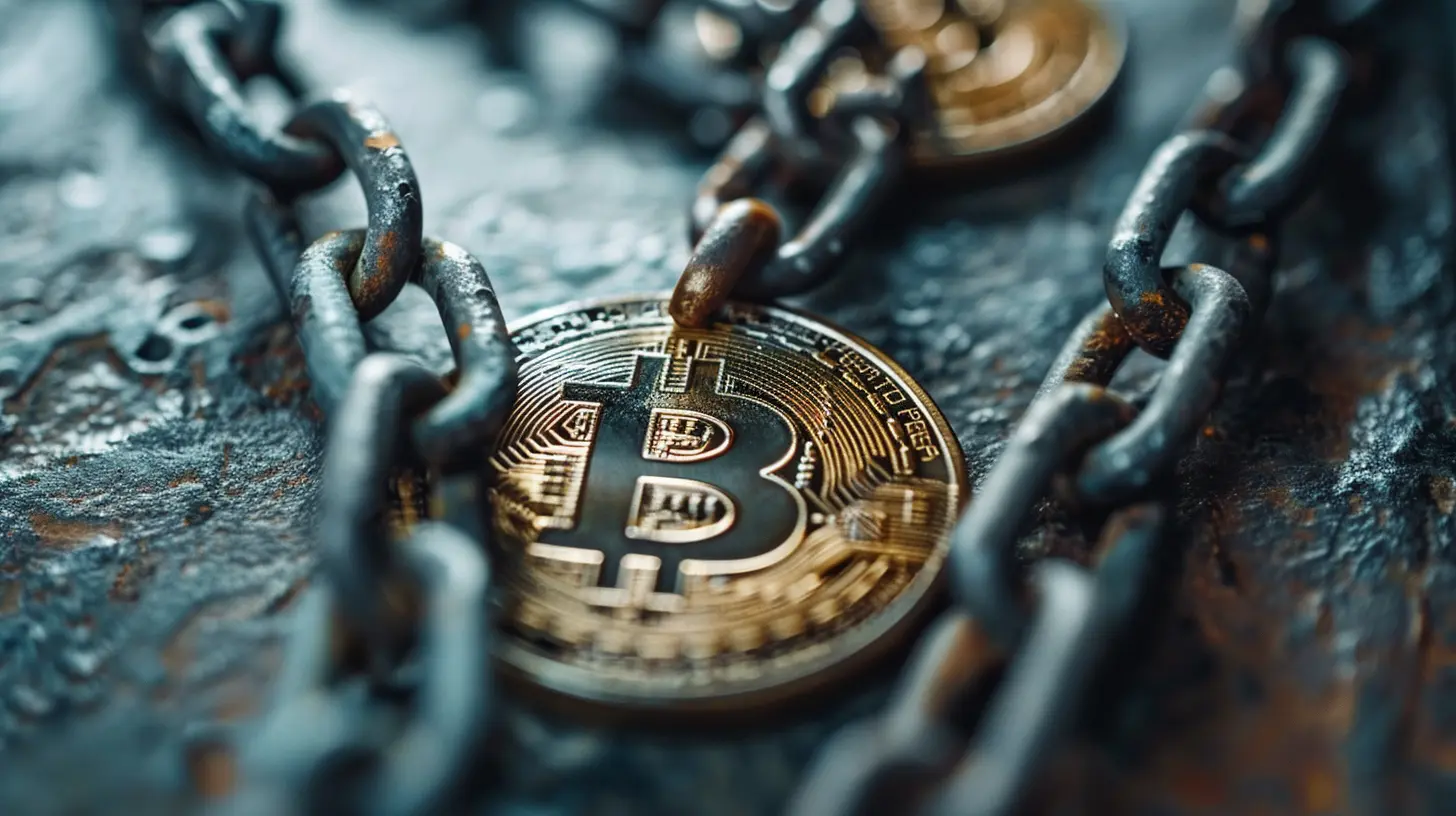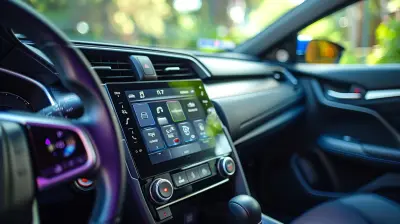9 January 2025
In today’s fast-paced digital world, securing online transactions has become one of the most significant concerns for individuals and businesses alike. Every time you swipe a card, transfer money, or make a purchase online, there’s a little voice in the back of your head asking: “Is my data safe?” And honestly, that’s not an unreasonable question. Cybercrime, data breaches, and identity theft are at an all-time high, and the internet can sometimes feel like the Wild West when it comes to protecting personal information.
Enter blockchain—the technology that might just be the sheriff we need in this lawless land. You’ve probably heard of blockchain in the context of Bitcoin and other cryptocurrencies, but its potential goes far beyond digital coins. Could blockchain be the key to making online transactions safer? Let’s dive into what makes blockchain technology so unique and how it could revolutionize the way we conduct transactions online.

What Even Is Blockchain?
Before we get ahead of ourselves, let’s start with the basics. What exactly is blockchain? Imagine a digital ledger, but instead of being stored in one place, it’s decentralized and distributed across multiple computers (called nodes) all over the world. This ledger isn’t controlled by any single authority, like a bank or government. Instead, it’s maintained by a network of participants who verify and record every transaction.Each of these transactions is stored in a “block,” and once a block is full of verified transactions, it gets added to the “chain” of previous transactions—hence the term “blockchain.” Every block is cryptographically linked to the one before it, making it extremely difficult to alter any past transactions without changing every subsequent block, which would require the consensus of the entire network. Good luck with that!
To put it simply, blockchain is a secure, transparent, and tamper-resistant way of recording information. That’s why it’s often described as a “trustless” system—because it eliminates the need for trust in any individual party. The system itself is designed to be inherently trustworthy.

Why Are Online Transactions Vulnerable?
Okay, so now that we know what blockchain is, let’s talk about why online transactions are so vulnerable in the first place. When you make a transaction online, whether you’re sending money, buying something, or even just sharing personal information, there are usually multiple intermediaries involved. Your bank, the merchant’s bank, payment processors, and sometimes third-party platforms all play a role in ensuring the transaction goes through.Sounds fine, right? Well, every one of these intermediaries is a potential point of failure. The more hands your data passes through, the more chances there are for something to go wrong—or worse, for someone with bad intentions to get their hands on it.
Hackers, for instance, love to target centralized systems—like banks or payment processors—because if they manage to break into one, they can access a treasure trove of valuable information. And remember all those data breaches you hear about? Many of them happen because of weaknesses in the centralized servers where sensitive data is stored.
On top of that, traditional systems rely heavily on trust. You trust your bank to handle your money, and you trust the merchant to protect your card details. But as we’ve seen time and time again, trust can be misplaced.

How Blockchain Could Revolutionize Online Transactions
So where does blockchain fit into all of this? Well, the decentralized nature of blockchain means that there’s no single point of failure. Instead of trusting a central authority to validate transactions, the blockchain network as a whole validates and records each transaction. This makes it incredibly difficult for hackers to manipulate the system.1. Decentralization: No Single Point of Control
One of the biggest advantages of blockchain technology is its decentralized nature. Unlike traditional systems where a central entity—like a bank—controls the ledger, blockchain distributes control across a network. This means there’s no single point for hackers to attack or for data to be compromised.
In fact, to tamper with a blockchain, a hacker would need to control more than 50% of the entire network, which for most blockchains (especially large ones like Bitcoin or Ethereum) is nearly impossible. This makes blockchain vastly more secure than traditional centralized systems.
2. Immutability: Once It’s Recorded, It’s Permanent
Another key feature of blockchain is its immutability. Once a transaction is recorded on the blockchain, it can’t be altered or deleted. This is because each block in the chain is cryptographically linked to the one before it. If someone tries to change a transaction, they would need to rewrite the entire history of the blockchain after that point—which, again, would require the consensus of the network.This immutability is a game-changer for online transactions. It means that once a transaction is confirmed, it’s set in stone. No more worrying about chargebacks, fraud, or unauthorized changes.
3. Transparency: Everyone Can See What’s Happening
Blockchain’s transparency is another feature that sets it apart from traditional systems. Because the blockchain ledger is distributed, everyone on the network has access to the same information. This doesn’t mean that your private data is out in the open, though. Transactions on the blockchain are typically pseudonymous—meaning that while the transaction details are visible, the identities of the participants are not.This transparency ensures that everyone can verify the legitimacy of transactions, which adds an extra layer of security. If someone tries to manipulate a transaction, it will be immediately obvious to the entire network.
4. Smart Contracts: Automating Transactions Safely
One of the coolest innovations to come out of blockchain technology is the concept of smart contracts. A smart contract is a self-executing contract with the terms of the agreement written directly into code. Once the pre-defined conditions are met, the contract automatically executes itself.For example, imagine you’re buying a car from someone online. With a traditional transaction, you’d probably use a third-party escrow service to hold the funds until the car is delivered. With a smart contract, there’s no need for an escrow service. The contract automatically releases the funds once it’s confirmed that the car has been delivered, based on the conditions coded into the blockchain.
Smart contracts remove the need for intermediaries, which means fewer opportunities for fraud or human error. They also speed up transactions and reduce costs, making them a win-win all around.

The Challenges Blockchain Faces
Now, before we get too ahead of ourselves and declare blockchain the savior of online transactions, it’s important to acknowledge that blockchain isn’t without its challenges.1. Scalability Issues
One of the biggest hurdles facing blockchain technology is scalability. Because every transaction needs to be verified by the entire network, blockchains can sometimes be slow and expensive to use, especially during periods of high demand. For instance, the Bitcoin network can only handle about 7 transactions per second, whereas Visa processes thousands of transactions per second.Developers are working on solutions to this problem, but for now, scalability remains a major roadblock to widespread adoption.
2. Energy Consumption
Blockchain networks, especially those that use proof-of-work (like Bitcoin), are notorious for their energy consumption. Verifying transactions on these networks requires solving complex mathematical puzzles, which consumes a massive amount of electricity. As environmental concerns grow, this is becoming a bigger issue for blockchain’s future.3. Regulatory Uncertainty
Blockchain is still a relatively new technology, and governments around the world are trying to figure out how to regulate it. This uncertainty can make it difficult for businesses to adopt blockchain, especially when it comes to financial transactions. Until there’s more clarity on how blockchain will be regulated, some companies may be hesitant to fully embrace the technology.Is Blockchain the Future of Online Transactions?
So, is blockchain the key to safer online transactions? The answer is… maybe. Blockchain offers a ton of potential when it comes to security, transparency, and decentralization. It’s already being used in a variety of industries—from finance to supply chain management—to improve the security and efficiency of transactions.However, there are still challenges that need to be addressed before blockchain can become a mainstream solution for online transactions. Scalability, energy consumption, and regulatory uncertainty are all significant obstacles. But as the technology continues to evolve, these challenges may eventually be overcome.
In the meantime, blockchain is already making waves in the world of online transactions, and it’s certainly a technology worth keeping an eye on. Whether it will become the standard for online transactions in the future remains to be seen, but one thing’s for sure: blockchain is changing the way we think about security and trust in the digital age.














Dax McGonagle
Blockchain offers promise, but confidence needs real-world proof and regulation.
April 6, 2025 at 4:52 AM